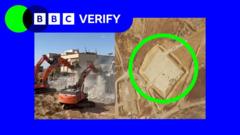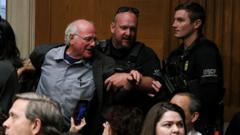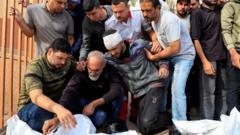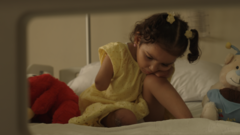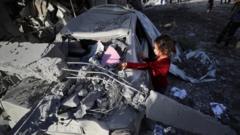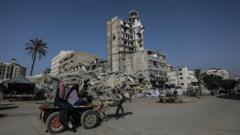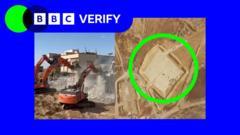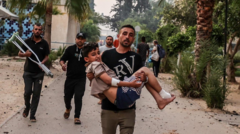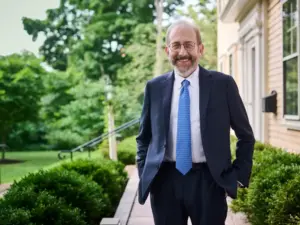Growing tensions fueled by the Gaza conflict highlight deep social divides in Europe, threatening unity and cultural settings.
Gaza War and Its Impact on Europe's Social Fabric

Gaza War and Its Impact on Europe's Social Fabric
Rising Antisemitism and Immigration Strains Cultural Institutions Across Europe
By Steven Erlanger, Reporting from Berlin
Nov. 15, 2024
In the wake of the ongoing conflict in Gaza, Europe's postwar institutions—established to foster peace and unity—are grappling with intensified social fractures. The ideals of the European Union and similar cultural organizations are increasingly undermined by escalating antisemitism, rising migration, and the rise of extremist, anti-immigrant movements. These issues have come to a head amid the violent backdrop of the Gaza war, affecting sentiments particularly among young Muslim communities and those angered by the casualties in Gaza, many of whom are civilians.
Recent incidents reflect these growing tensions. A soccer match between an Israeli and a Dutch team in Amsterdam has prompted investigations into alleged antisemitic attacks on Israeli supporters, showcasing the volatile atmosphere across the continent. Meanwhile, the Eurovision Song Contest held in Malmo, Sweden, experienced disruptions from pro-Palestinian protests against Israeli contestant Eden Golan. Her original performance, a tribute to lives lost in the Hamas attack on October 7, was significantly altered due to its political nature, highlighting the challenges organizers face in maintaining a non-political atmosphere during such events.
Although Golan's performance sparked a mixed reception—ranging from booing in the audience to substantial online support—it serves as a stark reminder that the ideological rifts surrounding the Gaza conflict are fundamentally reshaping cultural expressions meant to promote unity and joy. This situation underscores the imperative for European governments to address these conflicts and strive for cohesion in an increasingly divided society.
Nov. 15, 2024
In the wake of the ongoing conflict in Gaza, Europe's postwar institutions—established to foster peace and unity—are grappling with intensified social fractures. The ideals of the European Union and similar cultural organizations are increasingly undermined by escalating antisemitism, rising migration, and the rise of extremist, anti-immigrant movements. These issues have come to a head amid the violent backdrop of the Gaza war, affecting sentiments particularly among young Muslim communities and those angered by the casualties in Gaza, many of whom are civilians.
Recent incidents reflect these growing tensions. A soccer match between an Israeli and a Dutch team in Amsterdam has prompted investigations into alleged antisemitic attacks on Israeli supporters, showcasing the volatile atmosphere across the continent. Meanwhile, the Eurovision Song Contest held in Malmo, Sweden, experienced disruptions from pro-Palestinian protests against Israeli contestant Eden Golan. Her original performance, a tribute to lives lost in the Hamas attack on October 7, was significantly altered due to its political nature, highlighting the challenges organizers face in maintaining a non-political atmosphere during such events.
Although Golan's performance sparked a mixed reception—ranging from booing in the audience to substantial online support—it serves as a stark reminder that the ideological rifts surrounding the Gaza conflict are fundamentally reshaping cultural expressions meant to promote unity and joy. This situation underscores the imperative for European governments to address these conflicts and strive for cohesion in an increasingly divided society.



